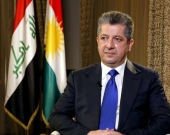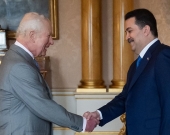Israeli attack exposes Assad's air defense weakness: rebels

Around Damascus the warplanes staged a series of raids in the early hours of Sunday including on President Bashar al-Assad's air defenses, opposition and rebel sources said. But none had more devastating results than at Hameh, a high-walled site linked to his chemical and biological weapons program.
"Families ran to basements and stayed there," said one witness of the attack on Hameh that lit up the night sky and shook the ground kilometers (miles) away. "We heard ambulances. There were very few workers at the compound at that time but an attack of this scale must have killed a lot of soldiers among the guards and patrols."
The raids have raised fears that Israel could be drawn into Syria's civil war, in which the United Nations says 70,000 people have died since an uprising against Assad family rule began two years ago. Damascus has accused Israel of effectively helping what it calls al Qaeda Islamist terrorists.
Western intelligence sources said the attacks were designed to prevent Syria sending Iranian-supplied missiles to the Shi'ite Hezbollah group in neighboring Lebanon for possible use against Israel. An Israeli general played down the consequences on Monday, saying: "There are no winds of war".
The witness said windows were blown out in workers' flats several hundred meters (yards) from Hameh's perimeter, even though the centre of the blasts was further away on the huge site, which is surrounded by air defenses.
Opposition sources said the warplanes also hit facilities manned by Assad's Republican Guards on Mount Qasioun, which overlooks central Damascus, and the nearby Barada River basin.
The area is believed to be a supply route to Hezbollah, according to residents, activists and opposition military sources. Their statements could not be verified due to restrictions on media operating in Syria.
RIGHT ON TARGET
One rebel commander said Assad's forces have been fortifying their positions on Qasioun since the uprising began in March 2011. "The Israelis still managed to get to the weapons stores. The secondary explosions indicate that they were right on target," he said, adding that Syrian air defenses, already weakened by the civil war "could not do anything".
Other opposition sources also said the targets included air defenses comprising Russian-made surface to air missiles and heavy anti-aircraft guns, deployed on Qasioun and overlooking the rebellious Damascus district of Barzeh.
"The destruction appeared to be massive. We have heard that the army has asked rank and file personnel based in Qasioun and those on leave to stay away. The military usually does this sort of thing when there is a big mess to sort out," said one activist in Damascus, who did not want to be named.
Assad's forces have fired on rebels from Qasioun, which is largely a closed military zone apart from a strip of restaurants, flattening areas of Damascus below.
However, it was unclear whether Israel was effectively helping the rebels by raiding the Qasioun sites, as Damascus has said, or attacked the air defenses purely to safeguard its own operations against Iranian-supplied missiles.
The Syrian government has said that Israel raided three military sites. Several media published what they described as a photo supplied by the official Syrian news agency showing a huge pile of collapsed concrete at a flattened building in an unspecified site they said was targeted by the Israelis. Reuters could not verify the photo.
Turkish Prime Minister Tayyip Erdogan, a strong opponent of Assad, said on Tuesday the Israeli air strikes had given the Syrian government an opportunity to cover up its own killings.
"The air strike Israel carried out on Damascus is completely unacceptable. There is no rationale, no pretext that can excuse this operation," Erdogan told parliament in Ankara.
Opposition sources familiar with the Hameh site said a large section of the compound housing missile systems appeared to have been hit. Mobile missile launchers, part of a Russian-supplied SA-17 air defense system deployed elsewhere on Qasioun, also appear to have been destroyed, they said
Western intelligence agencies suspect work on chemical weapons has been conducted at Hameh. Assad's government and the rebels have accused each other of carrying out three chemical weapons attacks, one near Aleppo and another near Damascus in March, and another near Homs in December.
The Syrian Observatory for Human Rights, an opposition monitoring group based in Britain, said at least 42 Syrian soldiers were killed and 100 others are missing.
Other opposition sources put the death toll at 300 soldiers, mostly belonging to the Republican Guards, an elite unit that forms the last line of defense for Damascus and comprises mainly members of Assad's Alawite sect, an offshoot of Shi'ite Islam that has controlled Syria since the 1960s.
Although casualties among Assad's troops appeared to be high, opposition sources said the raids were mainly targeted on storage facilities. "Whatever they hit, there is little chance that anything was left intact," another source in Damascus said.
(editing by David Stamp)
By Khaled Yacoub Oweis
(Reuters) -












